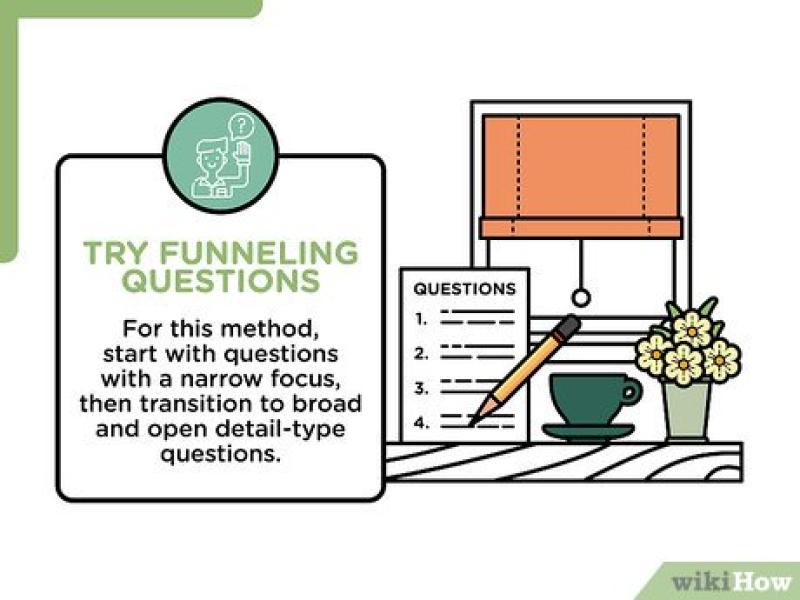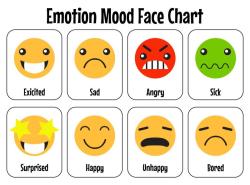Why do therapists ask open-ended questions?
Therapists use open-ended questions as a communication strategy to encourage clients to share more detailed and nuanced information about their thoughts, feelings, and experiences. Open-ended questions are designed to prompt meaningful and expansive responses, fostering a deeper exploration of issues and facilitating the therapeutic process. Here are several reasons why therapists use open-ended questions:
Encourages Exploration:
- Open-ended questions invite clients to explore their thoughts and feelings in greater depth. Instead of eliciting a simple "yes" or "no" response, open-ended questions encourage clients to reflect on and express themselves more fully.
Promotes Self-Reflection:
- By asking open-ended questions, therapists encourage clients to reflect on their experiences and gain insights into their emotions, behaviors, and beliefs. This self-reflection is a crucial aspect of the therapeutic process.
Facilitates Expression of Emotions:
- Open-ended questions create a safe space for clients to express their emotions. Clients can share their feelings without feeling restricted by the structure of the question, allowing for a more authentic and comprehensive exploration of their emotional experiences.
Supports Client Autonomy:
- Open-ended questions empower clients to take an active role in the therapeutic conversation. Clients have the freedom to shape their responses and determine the direction of the discussion, contributing to a sense of agency and control.
Enhances Communication and Rapport:
- Open-ended questions contribute to a more dynamic and engaging therapeutic dialogue. They foster a sense of collaboration between the therapist and the client, leading to improved communication and the development of a strong therapeutic relationship.
Uncovers Underlying Issues:
- Open-ended questions allow therapists to explore the underlying issues or concerns that may not be immediately apparent. Clients are encouraged to delve deeper into their experiences, uncovering hidden emotions or thoughts.
Supports Problem-Solving:
- When discussing challenges or problems, open-ended questions can guide clients toward exploring potential solutions. They promote a thoughtful examination of options and encourage clients to consider alternative perspectives.
Prompts Narrative Storytelling:
- Open-ended questions often lead to narrative responses, allowing clients to tell their stories in a more comprehensive manner. This narrative approach can provide valuable context and contribute to a richer understanding of the client's experiences.
Overall, the use of open-ended questions aligns with therapeutic principles such as empathy, active listening, and client-centered care. By creating an environment that encourages open and exploratory communication, therapists can help clients gain insights, develop self-awareness, and work towards positive changes in their lives.
The Purpose and Benefits of Open-Ended Questions in Therapy
Open-ended questions are a crucial tool in the therapist's toolkit, serving as effective prompts for self-exploration, fostering deeper understanding, and facilitating therapeutic progress. Unlike closed-ended questions that elicit brief, specific answers, open-ended questions encourage elaboration, reflection, and the expression of complex thoughts and emotions.
Purpose of Open-Ended Questions in Therapy:
Elicit Elaboration: Open-ended questions encourage clients to provide more detailed responses, allowing therapists to gain a deeper understanding of their clients' experiences, beliefs, and motivations.
Promote Self-Exploration: These questions stimulate clients to reflect on their thoughts, feelings, and behaviors, fostering self-awareness and personal growth.
Uncover Underlying Issues: Open-ended questions can help therapists uncover underlying emotions, patterns, and conflicts that may be contributing to the client's concerns.
Strengthen Therapeutic Alliance: The open-ended approach fosters a sense of collaboration and understanding between the client and therapist, building trust and rapport.
Benefits of Open-Ended Questions in Therapy:
Encourages Emotional Expression: Open-ended questions provide a safe space for clients to express their emotions freely, without fear of judgment or interruption.
Facilitates Unstructured Exploration: These questions allow clients to explore their thoughts and feelings without being guided by the therapist's agenda, leading to unexpected insights.
Promotes Client-Centered Approach: Open-ended questions emphasize the client's perspective and experiences, placing the client at the center of the therapeutic process.
Enhances Therapeutic Effectiveness: By fostering self-understanding and emotional expression, open-ended questions contribute to the overall effectiveness of therapy.
Encouraging Self-Expression and Exploration with Open-Ended Questions
Open-ended questions encourage self-expression and exploration by:
Using Non-Leading Language: Avoid language that suggests specific answers or steers the conversation in a particular direction.
Asking Broad Questions: Instead of asking specific questions that elicit yes/no answers, use broad prompts that invite elaboration.
Using Open-Ended Starters: Begin questions with words like "how," "what," "why," "tell me more," or "explain further."
Encouraging Silence: Allow clients time to reflect and formulate their thoughts without rushing them to respond.
Emphasizing Active Listening: Demonstrate genuine interest and understanding through verbal and nonverbal cues.
Facilitating Therapeutic Progress through Open-Ended Questions
Open-ended questions facilitate therapeutic progress by:
Identifying Root Causes: By encouraging exploration, these questions help uncover the underlying causes of a client's issues.
Promoting Insight and Understanding: Open-ended questions facilitate self-discovery and insight into personal patterns and behaviors.
Encouraging New Perspectives: These questions can help clients challenge limiting beliefs and adopt new perspectives.
Facilitating Emotional Processing: Open-ended questions provide a safe space for clients to process and express their emotions healthily.
Promoting Goal Setting: These questions can help clients identify and articulate their personal goals and aspirations.
Monitoring Progress: Open-ended questions allow therapists to track the client's progress and identify areas for continued exploration.
By skillfully employing open-ended questions, therapists can create a supportive and empowering environment for clients to engage in self-exploration, gain self-awareness, and achieve their therapeutic goals.













